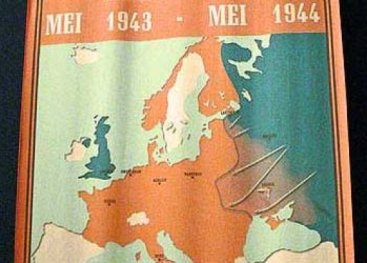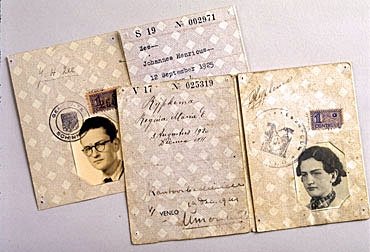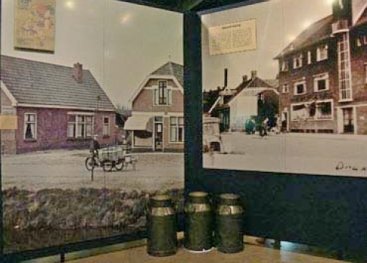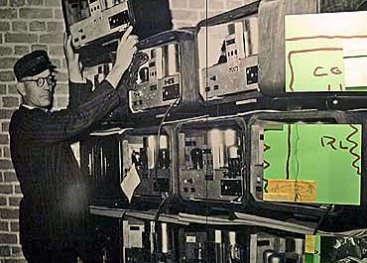
Hiding the persecuted
300.000
As the occupation continued, the number of people in hiding increased to more than 300,000 in 1944. Jews were the first large group in 1942, followed later by students, former soldiers and young men trying to escape work in Germany. Many people in the resistance were also living in hiding.
Densely-populated
It was difficult to find safe hiding places in the densely-populated Netherlands. In addition, people in hiding needed food — and therefore ration coupons — as well as forged identity papers and money. It was not easy to take in people in hiding. Many small groups were formed to organise help for people in hiding.
National Organisation for Aid to Those in Hiding
At the end of 1942 the LO [Landelijke Organisatie voor Hulp aan Onderduikers] was set up, the National Organisation for Aid to Those in Hiding, which combined many existing groups.
From August 1943, the LO organised a network of armed squads, the LKP [Landelijke Knokploegen, National Organisation of Armed Squads] that raided ration offices to obtain coupons.


Mrs Kuipers-Rietberg
Mrs Kuipers-Rietberg ('Aunt Riek'), a housewife from Winterswijk, was on the board of the Union of Christian Reformed Women's Associations with a vast network of contacts. When she began helping people in hiding she realised that a large organisation would be both useful and necessary. At the end of 1942, she and the Reverend Slomp set up the LO.
Henk Das

In 1942 Henk Das ('Ruurd') received a letter from a friend in the Christian Korfbal [a Dutch game of basketball] Association.
'He asked if I would help collect money and look for hiding places. That's how it all started.' He became the provincial leader of the Utrecht LO.
Leendert Valstar
 Horticulturist Leendert Valstar ('Bertus') joined Jacques van der Horst ('Louis') and Hilbert van Dijk ('Arie') in setting up the LKP. They travelled all over the country looking for existing armed squads. Valstar's enormous hands were useful for concealing his small pistol. In 1944 Valstar was arrested and executed at Camp Vught.
Horticulturist Leendert Valstar ('Bertus') joined Jacques van der Horst ('Louis') and Hilbert van Dijk ('Arie') in setting up the LKP. They travelled all over the country looking for existing armed squads. Valstar's enormous hands were useful for concealing his small pistol. In 1944 Valstar was arrested and executed at Camp Vught.
Father Bleijs
 Many Catholic clergymen were involved in setting up the LO in Limburg. Father Bleijs from Roermond, 'a fierce man with a twinkle in his eye', already had experience helping crews of downed Allied planes. He introduced 'Our Lady of the Safe Hiding-Place' as the guardian angel for people in hiding. The reproduction hung over people's beds in many hiding places.
Many Catholic clergymen were involved in setting up the LO in Limburg. Father Bleijs from Roermond, 'a fierce man with a twinkle in his eye', already had experience helping crews of downed Allied planes. He introduced 'Our Lady of the Safe Hiding-Place' as the guardian angel for people in hiding. The reproduction hung over people's beds in many hiding places.
Joe Russel
Student Joe Russel (‘Kobus’) was leader of the Venray district of the LO. The search for him became so intensive that he had to assume a female identity. A scarf hid his Adam's apple.


People in hiding needed food, too
Large numbers of food coupons had to be distributed throughout the country. In some cases they were carried by female couriers pretending to be pregnant. Initially there was a national exchange where people seeking a hiding place were 'put on offer' and ration coupons distributed. Later on the exchange was organised on a provincial level.
Boredom
The biggest problem for people in hiding was boredom. To kill time and to make themselves useful, they produced articles that were sold to benefit organised aid to those in hiding. These items were often expressions of resistance such as the Margriet pins, worn after the birth of Princess Margriet in Canada as a display of loyalty to the royal house. But hiding also created tensions.
A woman who helped people in hiding:
'I had received a jar of brown beans and I gave them to a friend who was pregnant. The two people hiding in my house were furious. They thought I shouldn't have given away those valuable beans just like that.'
A child in hiding:
'At one place where I stayed three months with another Jewish girl, we were put to work as maids from early in the morning to late at night. We had to do all the household chores. When we were done we had to go upstairs while the family had fun together.'

